How Another Government Shutdown Could Impact the Cannabis Industry in California
January 22, 2018 – On Saturday, January 20, 2018, the federal government partially shut down due to the failure of Congress to pass a budget. Since the minimal protection that medical cannabis has enjoyed at the federal level exists as a rider to the federal budget, this government shutdown caused much consternation in the medical cannabis community. On Monday, January 22, 2018, a short-term budget deal was reached that extends the Rohrabacher-Blumenauer Amendment for a few weeks, until February 8, 2018. The issue merely has been postponed. How could another government shutdown impact the cannabis industry in California?
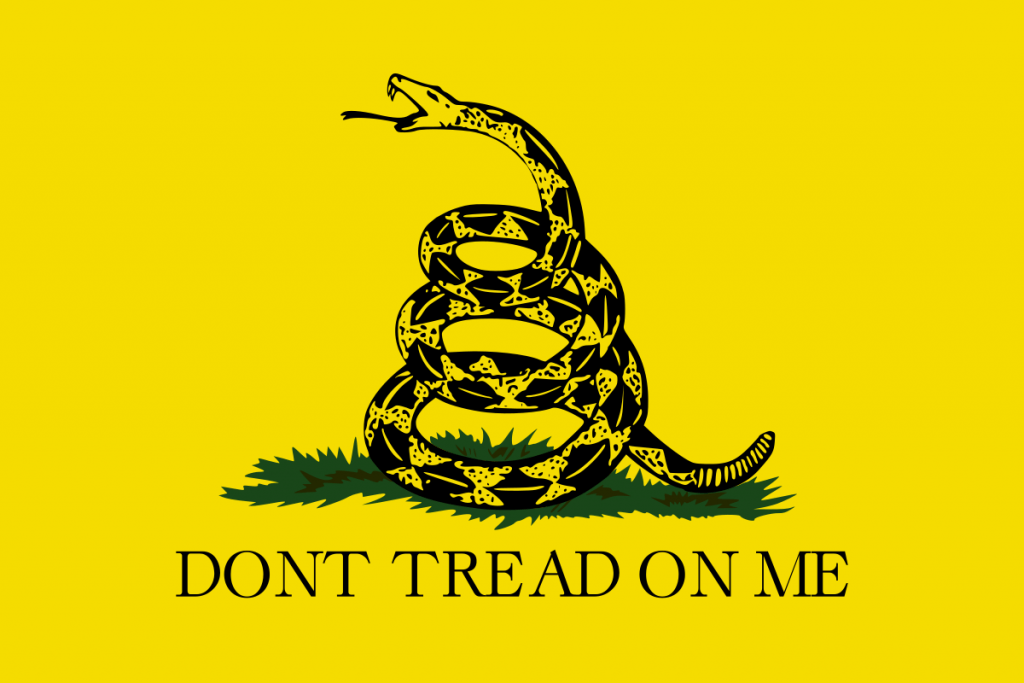
The Rohrabacher-Blumenauer Amendment (previously known as the Rohrabacher-Farr Amendment) is part of the current short-term budget and it has been extended for the past several years in previous Appropriations Acts. The provision prevents the U.S. Department of Justice from using funds from the federal budget to prosecute individuals acting in compliance with state-level medical cannabis laws. It does not restrict other federal agencies, such as the U.S. Department of the Treasury or FinCEN, from enforcing federal law.
Critically, the rider has been successfully used in court to temporarily halt the federal prosecutions of individuals acting in strict compliance with state medical marijuana laws. (By its terms, the Rohrabacher -Blumenauer Amendment only provides protection for medical cannabis, and not for adult-use cannabis.) Without the protections of Rohrabacher-Farr in place, new medical-cannabis-related prosecutions could be initiated, and ones that had been suspended can continue.
Considering Attorney General Jeff Sessions’ January 4 rescission of the Cole Memo and guidance documents pertaining to enforcement of federal cannabis policies in states where cannabis has been legalized, the temporary expiration of the Rohrabacher -Blumenauer Amendment resulted in significant uncertainty. Those memoranda, in particular the Cole Memo, had allowed medical cannabis operations to grow significantly in places like Colorado, Washington, Oregon, and California during the past several years without much fear of federal prosecution. In the wake of this, the Department of the Treasury stated on January 17 that it is reviewing the Financial Crimes Enforcement Network (FinCEN) guidance for financial institutions that provide banking services to cannabis businesses.
During a federal government shutdown, certain “nonessential” programs are stalled; however, federal law enforcement and prosecution actions are exempted from having to shut down, the argument being that they are needed to protect the life and property of the American people. Thus, Drug Enforcement Administration (DEA) agents and federal prosecutors are not furloughed. The details are set forth in the Department of Justice’s Fiscal Year 2018 Contingency Plan, which states, “The law enforcement capacity of the U.S. Government should not be impaired or perceived to be impaired. To do so could constitute an imminent threat to the safety of human life and the protection of property.”
Additionally, the DOJ’s Asset Forfeiture program is not impacted. To address this, Rep. Ted Lieu (D-CA) and Rep. Earl Blumenauer (D-OR) introduced a new bill on January 17, the “Stop Civil Asset Forfeiture Funding for Marijuana Suppression Act of 2018” (HR 4816) that would prevent money from the Asset Forfeiture Fund to be used to enforce federal cannabis prohibition.

There are several, more durable solutions. First, Congress could include the Rohrabacher-Farr amendment (or more likely its Senate counterpart, the Leahy Amendment, or perhaps the more expansive Paul Ryan Marijuana Amendments) in whatever budget measure is ultimately agreed upon. If Congress wanted to extend this protection to all cannabis businesses as opposed to only medical cannabis businesses, it could simply remove the word “medical” from previous versions when reauthorizing. Congress could also pass a separate measure to legalize cannabis, or to respect states’ rights in the area of marijuana policies. There are a number of cannabis-related bills in Congress right now that could achieve this, including the “Restraining Excessive Federal Enforcement & Regulations of Cannabis Act of 2018” and the “Respect State Marijuana Laws Act of 2017.”
For now, the cannabis industry should watch the federal government’s developments closely. After the “Sessions Memo”, the local United States Attorney for each federal district has significantly greater discretion in deciding whether and how to prosecute marijuana-related offenses in that particular judicial district.
Within California, there are four federal judicial districts. The United States Attorney (USA) for each of California’s judicial districts is the chief federal prosecutor, responsible for overseeing the duties of federal prosecutors, known as Assistant United States Attorneys (AUSA’s), in that United States Attorney’s Office (USAO).
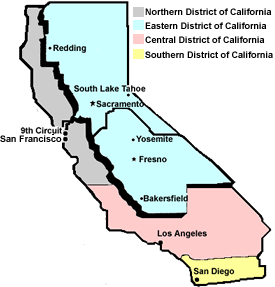
The Northern District of California, which stretches from Monterey County in the South to the state’s northern border with Oregon and west almost to Sacramento. (Acting United States Attorney Alex G. Tse was formerly the First Assistant United States Attorney in the Northern District of California, a position he held since February of 2016. Prior to being First Assistant, Mr. Tse was the Chief of the Civil Division since late 2012.)
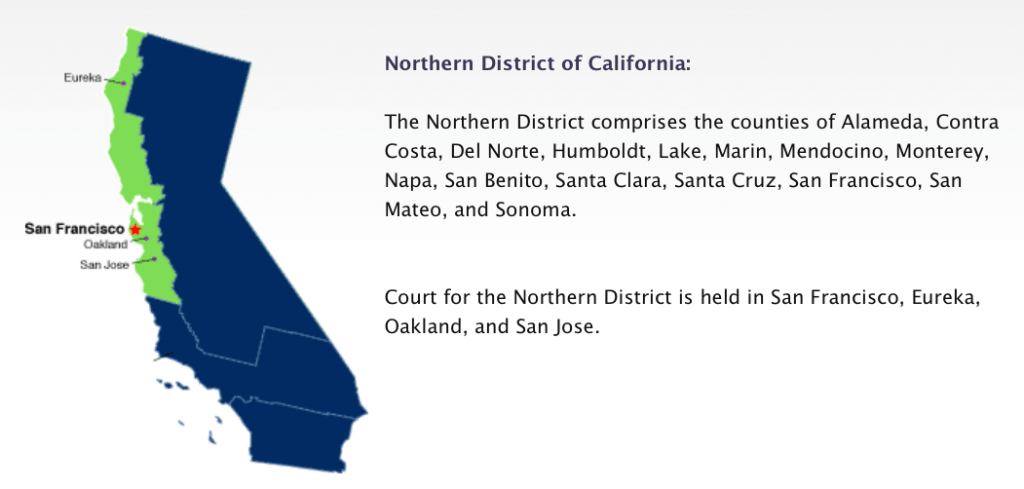
The Eastern District of California, which is the largest federal district in the state, encompasses most of the Central Valley, the Sacramento Valley, and the Sierra Nevada region up to the Oregon border. It is led by United States Attorney McGregor “Greg” Scott, who has been previously criticized by California NORML for leading an aggressive crackdown on medical marijuana in the Eastern District. Hopefully, United States Attorney Scott’s position has evolved now that medicinal and adult-use cannabis has been legalized in California.
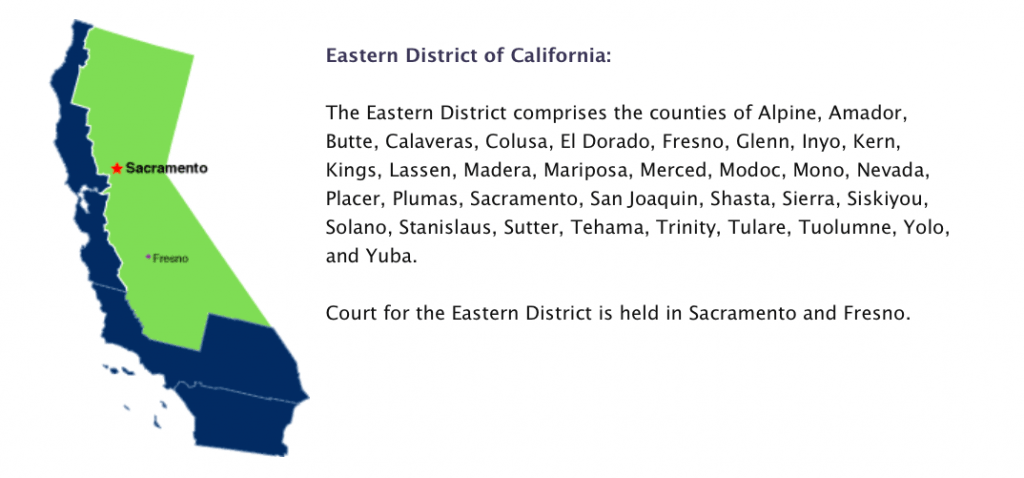
The Central District of California encompasses the Los Angeles metropolitan area and stretches from Orange County in the south, up to San Luis Obispo County in the north, and San Bernardino County in the east. It is led by former federal prosecutor and newly-appointed United States Attorney Nicola “Nick” Hanna.
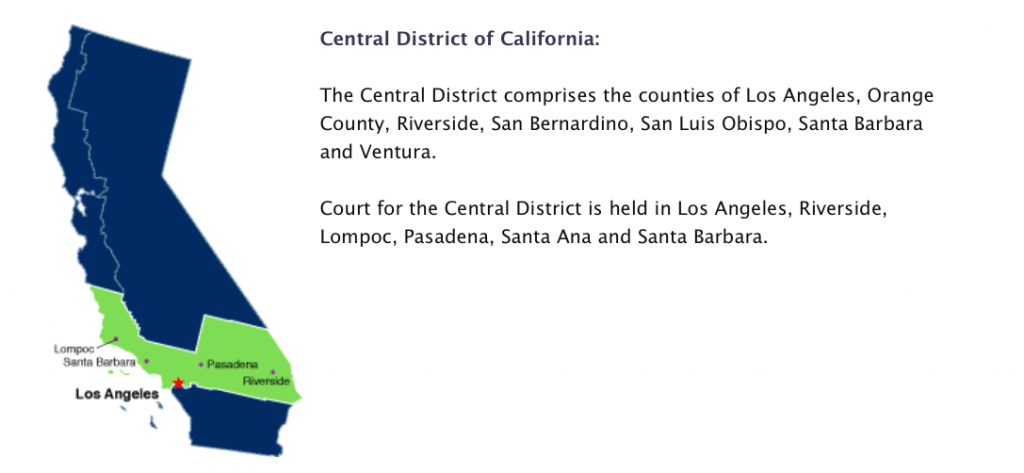
The Southern District of California, includes San Diego and Imperial Counties, and is led by United States Attorney Adam Braverman, a former federal drug prosecutor who aggressively prosecuted members of the Sinola Cartel. Reportedly, USA Braverman issued the following statement:
“The Department of Justice is committed to reducing violent crime and enforcing the laws as enacted by Congress. The cultivation, distribution, and possession of marijuana has long been and remains a violation of federal law. We will continue to utilize long-established prosecutorial priorities to carry out our mission to combat violent crime, disrupt and dismantle transnational criminal organizations, and stem the rising tide of the drug crisis.”
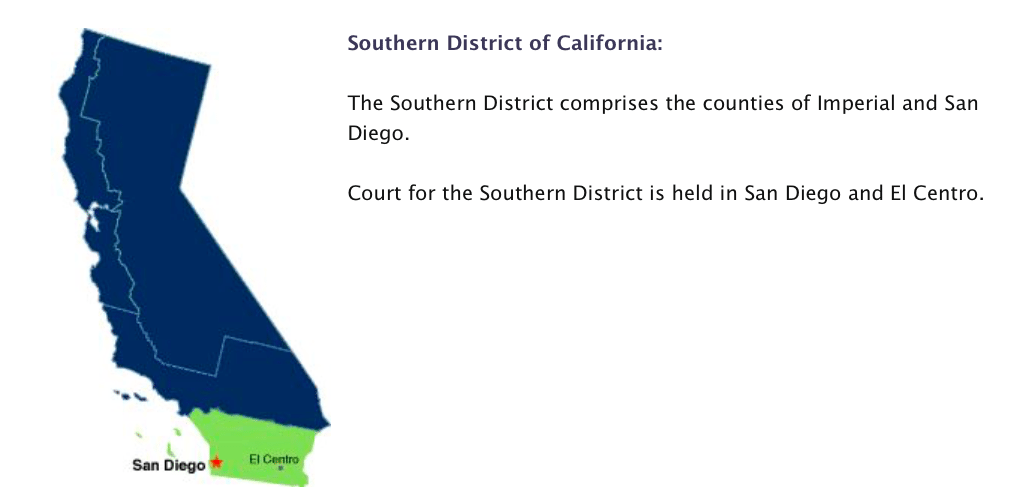
When Donald Trump ran for president, one of his campaign promises was that he would respect states’ decision to legalize cannabis. Thus, any enforcement of federal cannabis prohibition may result in backlash from both the progressive community as well as hardline Trump supporters who believe in states’ rights. A recent poll showed that 73% of voters did not want the federal government to interfere with states’ marijuana laws. 57% of California voters voted “Yes” on Proposition 64 in 2016 to legalize cannabis for adult use.
This is a developing story. Stay tuned for more updates.
This information is provided as a public service and is not intended as legal advice.
